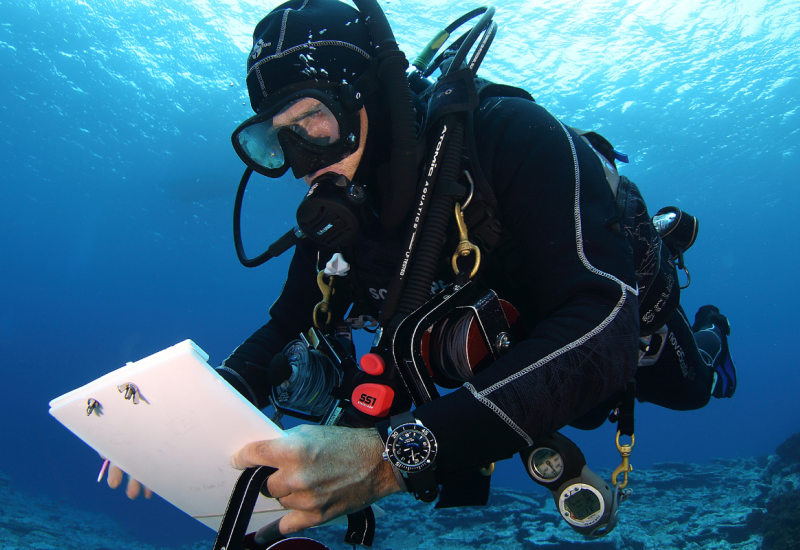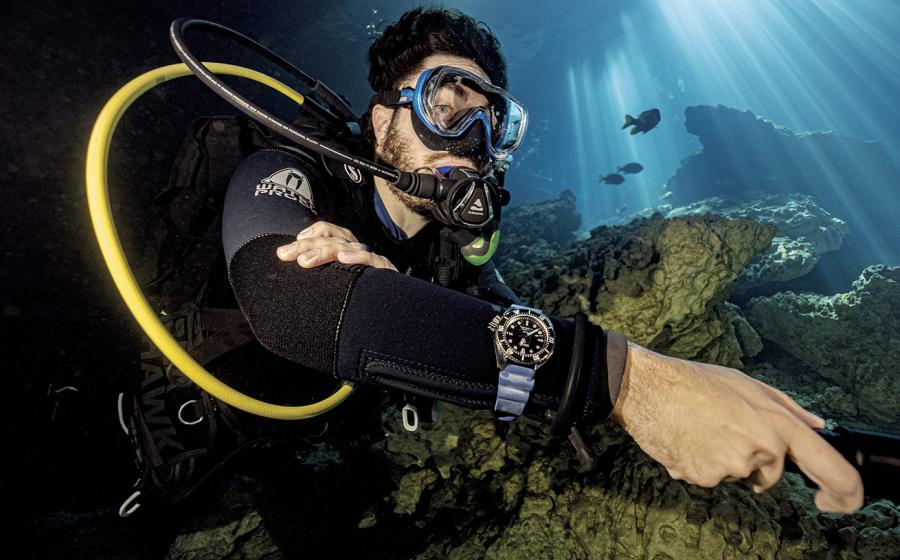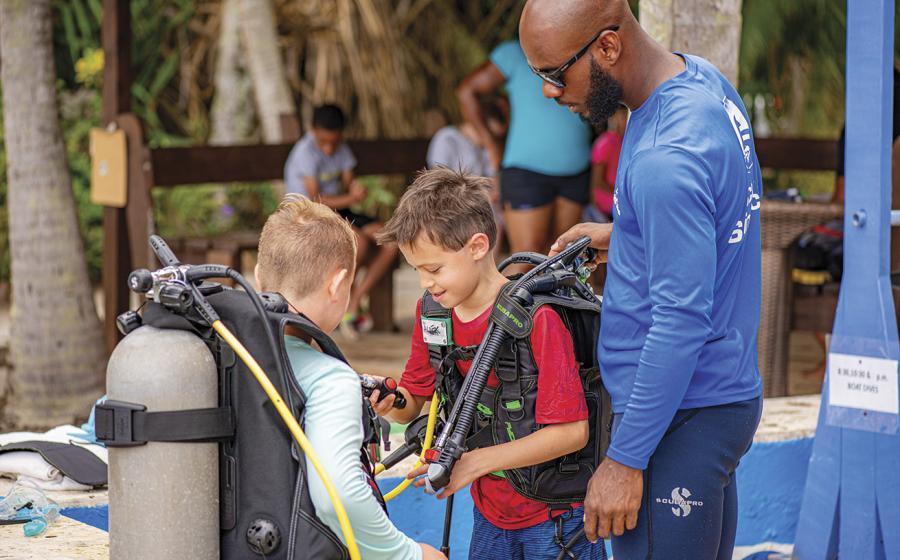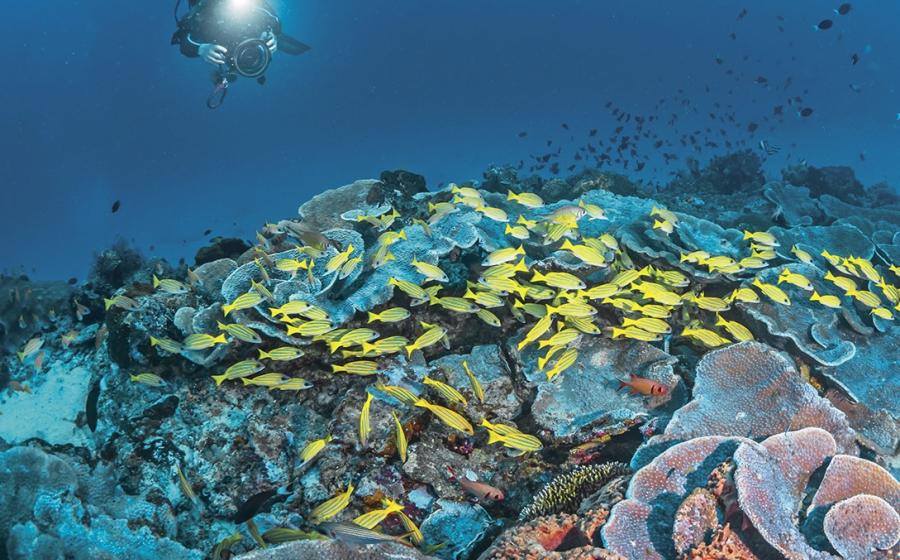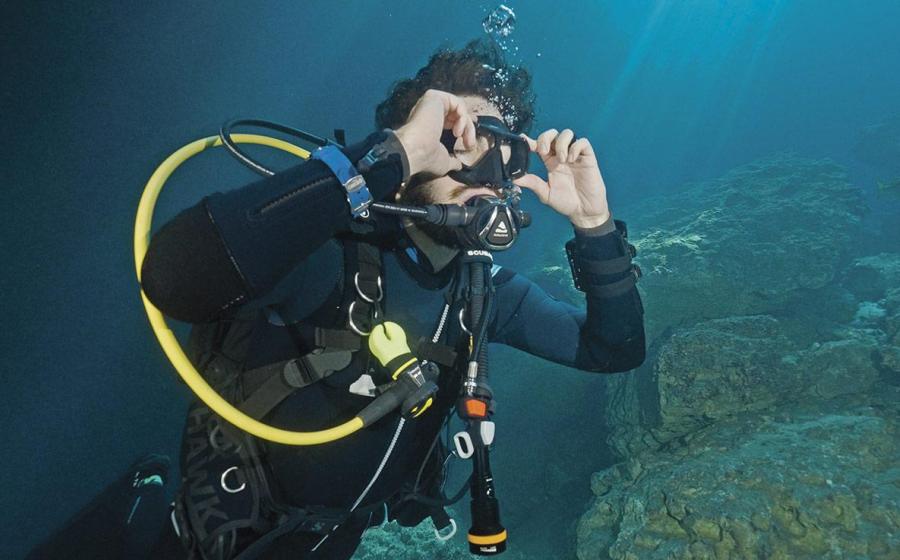Sea Change
Water is Earth’s greatest life-giving force, an essential source of food and income for billions of people and home to roughly 25 percent of the planet’s species. Adopt the Blue™—the collaboration between PADI®, PADI AWARE Foundation™ and Manufacture de Haute Horlogerie Blancpain, which created the first true diver’s watch in 1953—shows how citizen-science marine conservation programs can provide multiple benefits to local communities and marine habitats.
These local programs can also have a global impact. Adopt the Blue aims to create a minimum of 10,000 sites, working with local communities and PADI operators to accelerate local conservation efforts where they are most needed, and to actively contribute toward protecting nearly one-third of the ocean as marine protected areas (MPAs).
“Achieving this goal would help restore overexploited fish populations, boost carbon storage and enhance the ocean’s ability to adapt to climate change,” says Katie Thompson, senior director of Environment & Sustainability at PADI Worldwide. “Divers play a pivotal role in this effort by serving as both guardians and advocates—monitoring underwater environments, collecting valuable data and raising awareness about the importance of expanding MPAs. Through citizen science, activism and eco-conscious diving practices, divers can drive greater public and political support for protecting 30 percent of our oceans by 2030.”
At time of publication, 2,518 sites, covering 77,815,026 square kilometers, have been added to the program (see an interactive map at atb.padiaware.org/actionmap).
Created in 1953, the Fifty Fathoms is the first true diver’s watch. Created by Blancpain CEO Jean-Jacques Fiechter, an avid diver, to meet the needs of underwater exploration, it was chosen by diving pioneers and combat diver corps around the world as a professional timekeeping instrument. With its water resistance, robust doubled-sealed crown, self-winding movement, contrasting dark dial with luminescent indications, lockable rotating bezel and anti-magnetic protection, the Fifty Fathoms became an indispensable instrument for divers on their underwater missions.
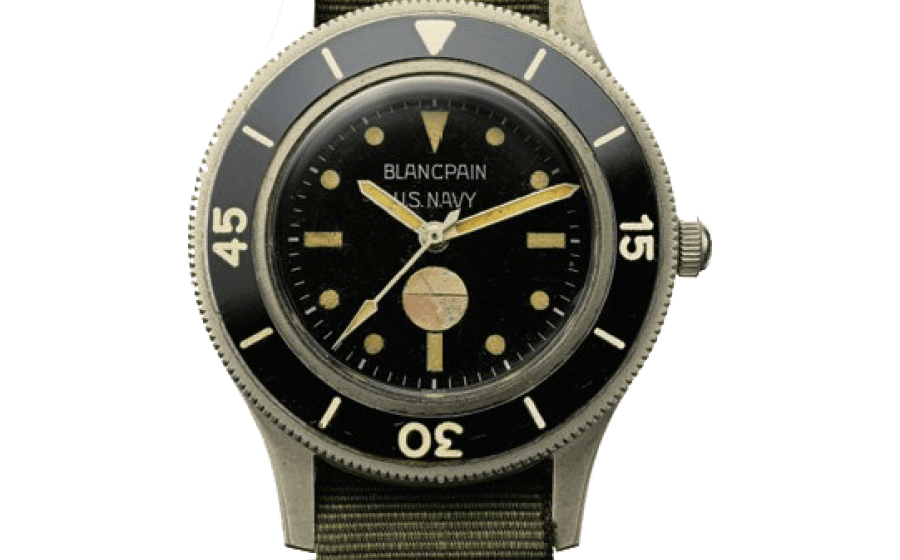
These key signature elements that established the Fifty Fathoms as the archetypal diver’s watch continue to define the identity of such timepieces for the entire watch industry. Bearing witness to the past while simultaneously looking firmly to the future, contemporary Fifty Fathoms models incorporate modern in-house movements renowned for their robustness and reliability. They feature numerous technical innovations derived from Blancpain’s longstanding experience in the field of diving, its risks and its imperious necessities.
The Fifty Fathoms has played an essential role in the development of scuba diving and thus the discovery of the ocean world. It has enabled Blancpain to forge close links with the ocean community that have been consistently strengthened for more than 70 years. The Fifty Fathoms is the catalyst for Blancpain’s commitment to ocean conservation, known as the Blancpain Ocean Commitment.
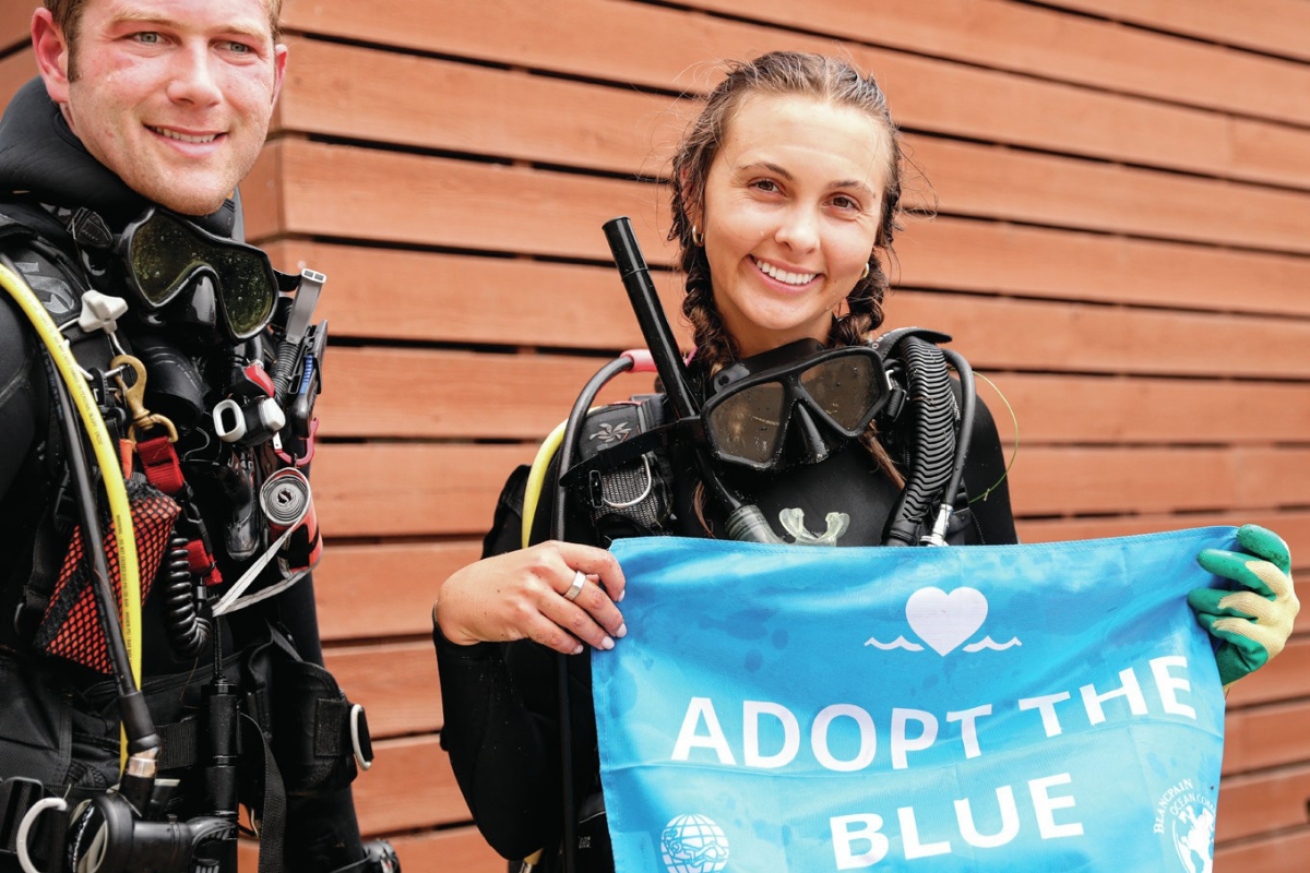
Courtesy of PADI AwareMore than 2,500 sites have been added to Adopt the Blue’s database, accelerating conservation through citizen science and advocacy in key areas around the world.
Influencing Local Policy
Local citizen-science projects have long been effective in providing marine conservation groups valuable data on marine life, habitats and environmental conditions. Marine biologists and researchers use this data to monitor populations, identify threats and inform conservation policies.
Barbados Blue, a PADI Five Star Dive Resort in Barbados, has been monitoring and documenting the reefs off the Eastern Caribbean island country for more than 30 years. The Barbados Blue team supports the Adopt the Blue program and conservation efforts in a number of ways, including regularly scheduled beach and underwater cleanups, lionfish derbies to keep the invasive species in check, and the PADI AWARE swim program, which encourages local kids to become future ocean guardians and dive professionals.
“We share data—especially data that shows the economic benefit of protecting our coral reefs—with the government of Barbados so that they will increase the level of protection for our reefs,” says André Miller, marine biologist, PADI MSDT and freediving instructor at Barbados Blue Water Sports. “For example, showing that sea turtle tourism is worth more than a dead sea turtle, which might bring in $100.”
Marine biologists, researchers and a host of other nonprofit marine conservation organizations have long appreciated the data provided by divers who engage in citizen-science projects and surveys, which can help shape marine protection policy.
Nicole Helgason, a PADI Open Water dive instructor and coral specialist with the Bali-based NGO Ocean Gardener, says citizen-scientist divers are the “voice” for the ocean and marine life. “By communicating on behalf of the ocean, sharing our understandings and visuals, policies can shift toward protection.”
“Local knowledge can help fill critical knowledge gaps, and input from communities can help shape policies in an inclusive way that can lead to durable conservation measures,” says Stacy Baez, senior officer with Pew Charitable Trusts’ Advancing Coastal Wetlands Conservation project. “There is a role for local and Indigenous knowledge in science and policy development, as these are often frontline communities.”
“Citizen scientists can be key data collectors for research and conservation, especially on endangered species that can be difficult and expensive to study,” Jessica Pate, PADI Open Water Scuba Instructor, research scientist and U.S. country manager of the Marine Megafauna Foundation. “In Indonesia, data collected by scuba divers on MMF’s Manta-Matcher platform was used to describe movements of manta rays between two protected areas. Data like this was important in the entire country of Indonesia becoming a manta ray sanctuary.”
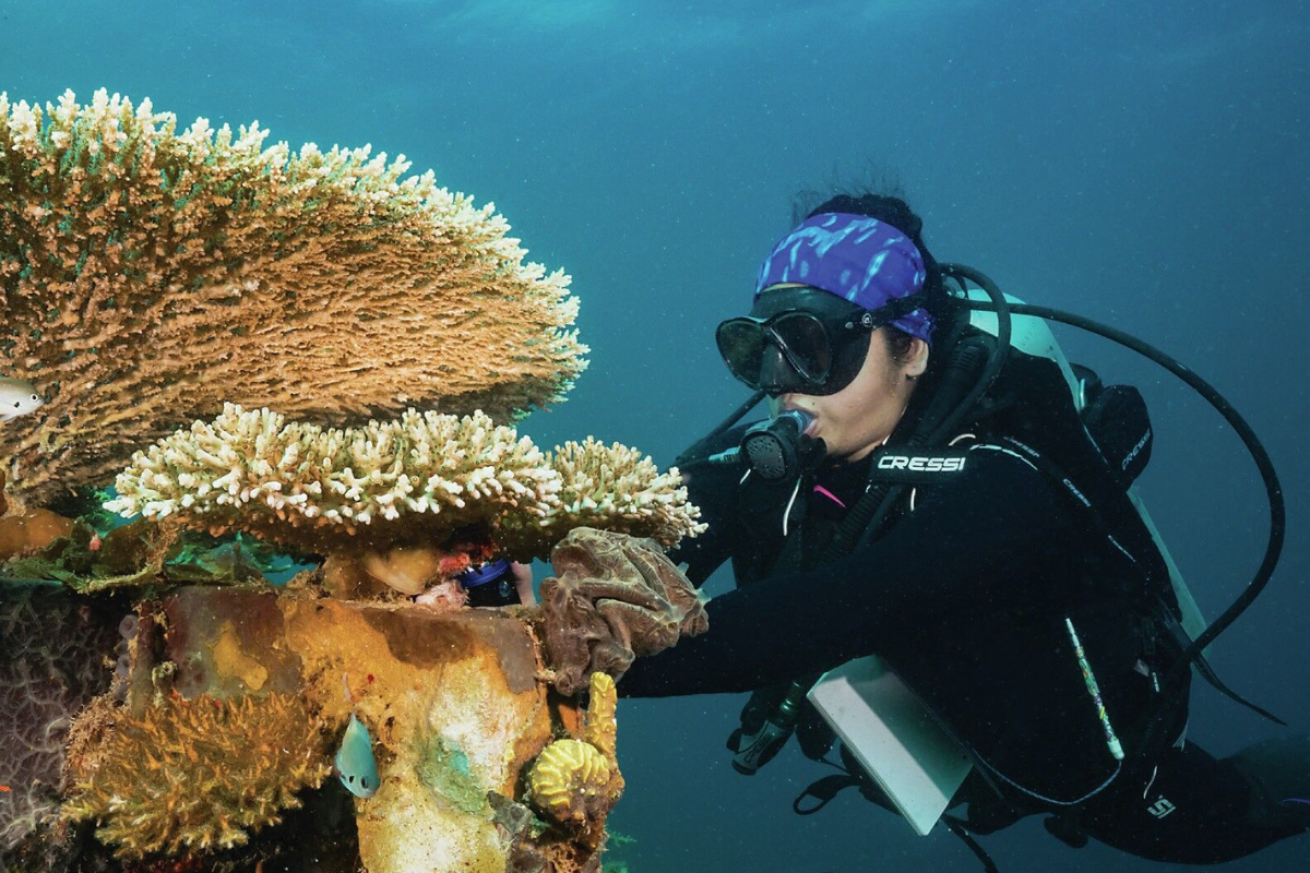
Courtesy of BlancpainWith Blancpain’s support, the Sea Academy program is creating a network of MPAs in collaboration with local communities from surrounding villages in Shark Fin Bay, Philippines.
Building Community Connections
By identifying local stakeholders and encouraging collaboration, a citizen-science project can create a network of people who are not only passionate about ocean conservation but also rolling up their sleeves (or putting on their wetsuits) and getting to work.
“Coastal communities are often the first to recognize changes in ocean and coastal ecosystems,” says Baez. “For example, gleaners who collect clams and other species from the intertidal areas are the first to see changes and degradation in seagrass meadows. Similarly, divers on coral reefs will spot bleaching and other events before managers. These communities often hold valuable information regarding coastal ecosystems that is relevant for both science and management.”
“Local community stakeholders are concerned for their livelihoods through fishing and tourism,” says Helgason. “The more people we have participating in coral reef science, research and restoration, the more we know collectively about the ecosystem as a whole. Coastal communities benefit when ecosystems are intact.”
While organizations such as the Pew Charitable Trusts, Ocean Gardener and the Marine Megafauna Foundation use local citizen-science data to inform their research and effect policy, Adopt the Blue was conceived to knit together local efforts to create a blanket of MPAs around the world. In supporting Adopt the Blue, PADI, PADI AWARE and Blancpain have created an unprecedented effort to create a greater inventory of MPAs.
“Adopt the Blue is mobilizing the global PADI dive community to take action to address the numerous threats facing our oceans,” says Thompson. “The collective efforts of PADI’s community of 6,600 PADI Dive Centers and Resorts, 126,000 PADI Professional Members worldwide, and more than 29 million divers can have a monumental impact on creating ocean change.”
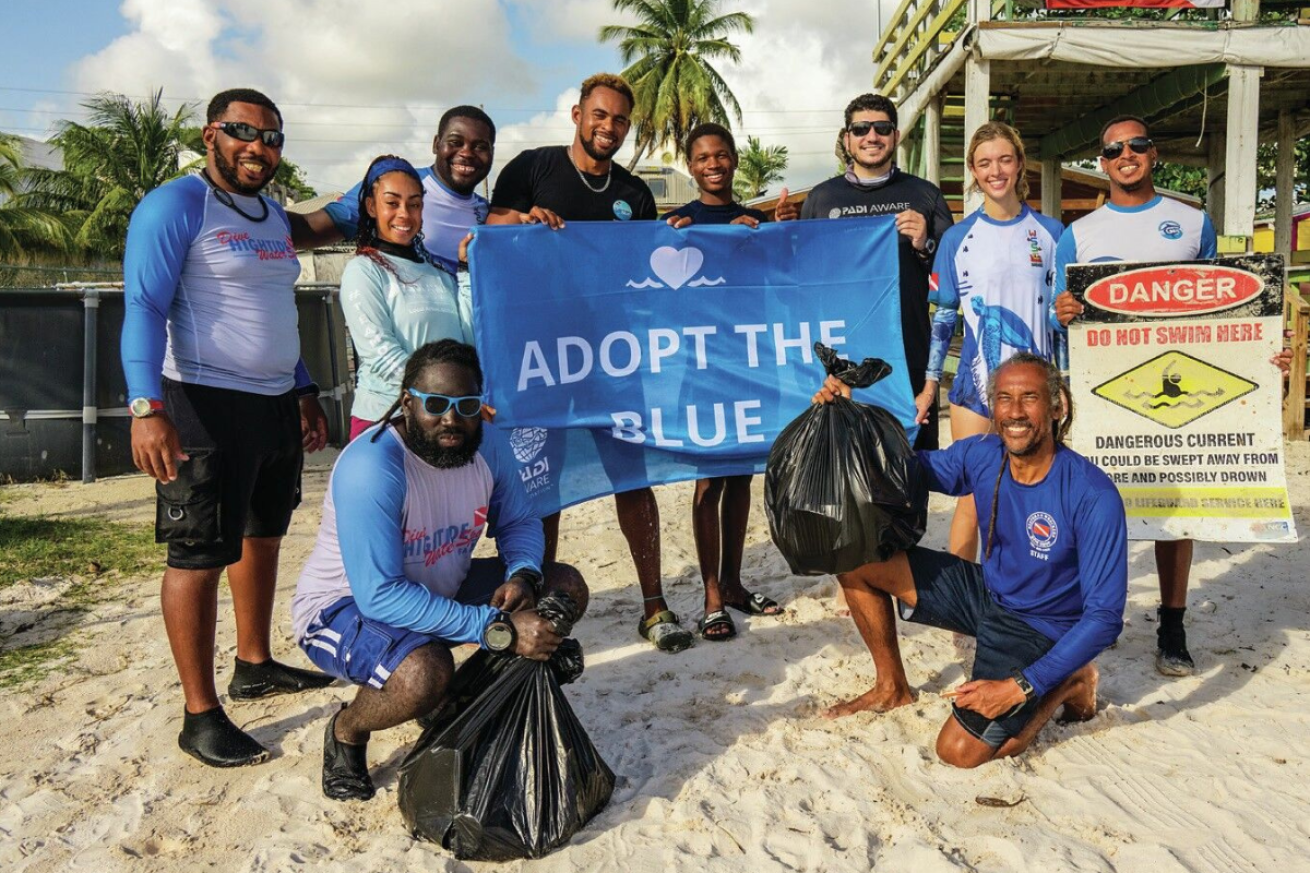
Courtesy of PADI AwareRepresentatives from PADI AWARE and the local dive community wrap up an Adopt the Blue beach cleanup event in Barbados supported by PADI, PADI AWARE and Blancpain.
The Padi Community: A Powerful Force
The Adopt the Blue online platform provides a way for PADI operators, professionals, divers and other Ocean Torchbearers™ to designate specific sites—they don’t have to be dive sites—and get actively involved in implementing conservation efforts at those sites. Divers can help perform surveys on vulnerable and endangered species critical to preserving marine ecosystem balance, spearhead underwater cleanups or engage in coral monitoring projects.
While only PADI Dive Centers and Resorts and PADI Professionals can adopt the sites in the online platform, PADI Club members can provide critical data when they join conservation actions with participating PADI dive centers around the globe.
The firsthand experiences and observations of the PADI community provide invaluable insights that inform scientific research and will hopefully lead to the establishment of MPAs.
“Through citizen science, activism and eco-conscious diving practices, divers can drive greater public and political support for protecting our oceans,” says Thompson. “The collaborative spirit and dedication of the Adopt the Blue stakeholders offers a promising path forward in the fight to preserve our blue planet.”
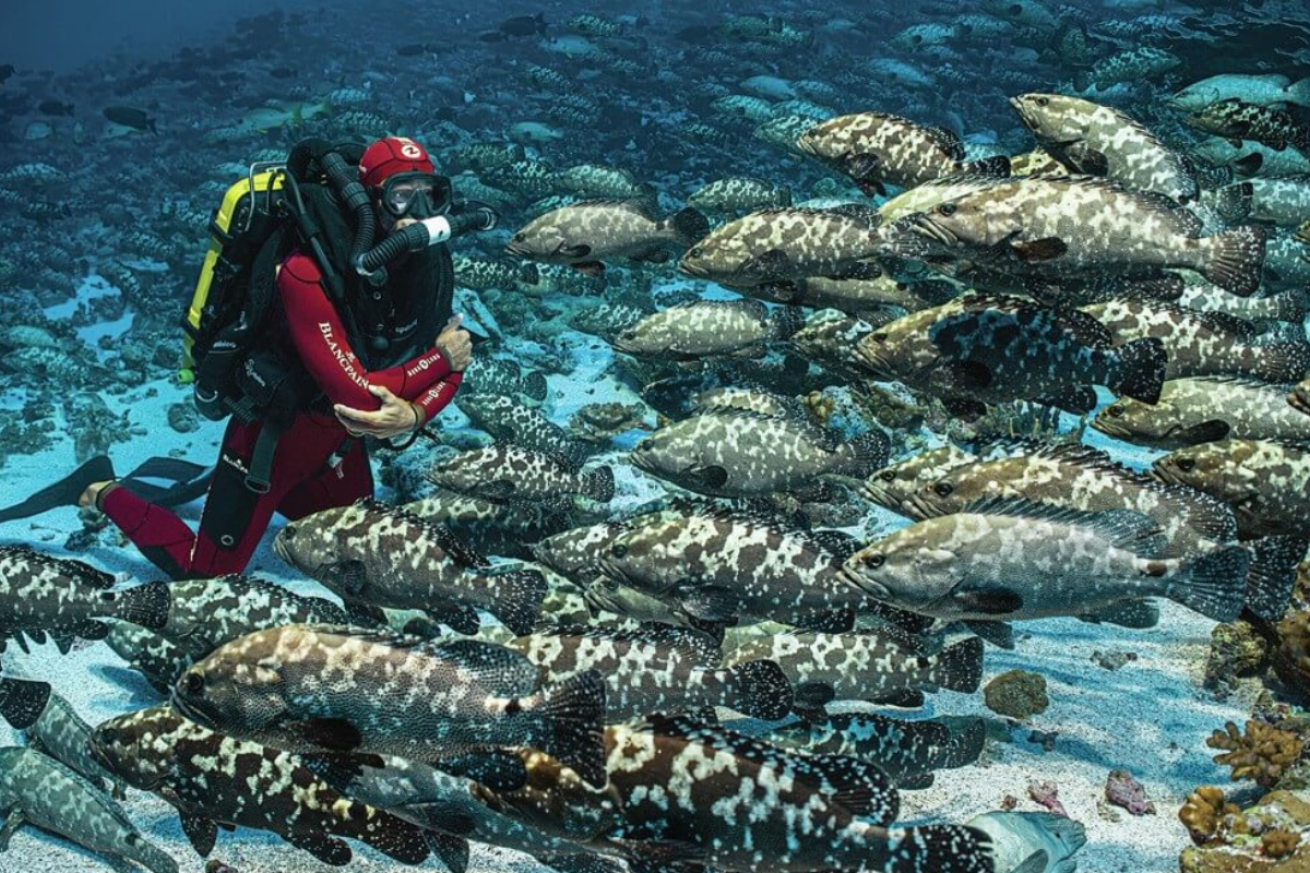
A scuba diver with many fishBlancpain has supported Laurent Ballesta’s Gombessa Expeditions since his very first mission in 2013.
Blancpain, A Tradition of Innovation Since 1735
Founded in 1735 in the Swiss Jura Mountains, Blancpain is known as the world’s oldest watch brand. Loyal to its tradition of innovation and confirmed by countless horological complications invented over the years, the Manufacture constantly pushes the boundaries of watchmaking to take this art to places it has never been before.
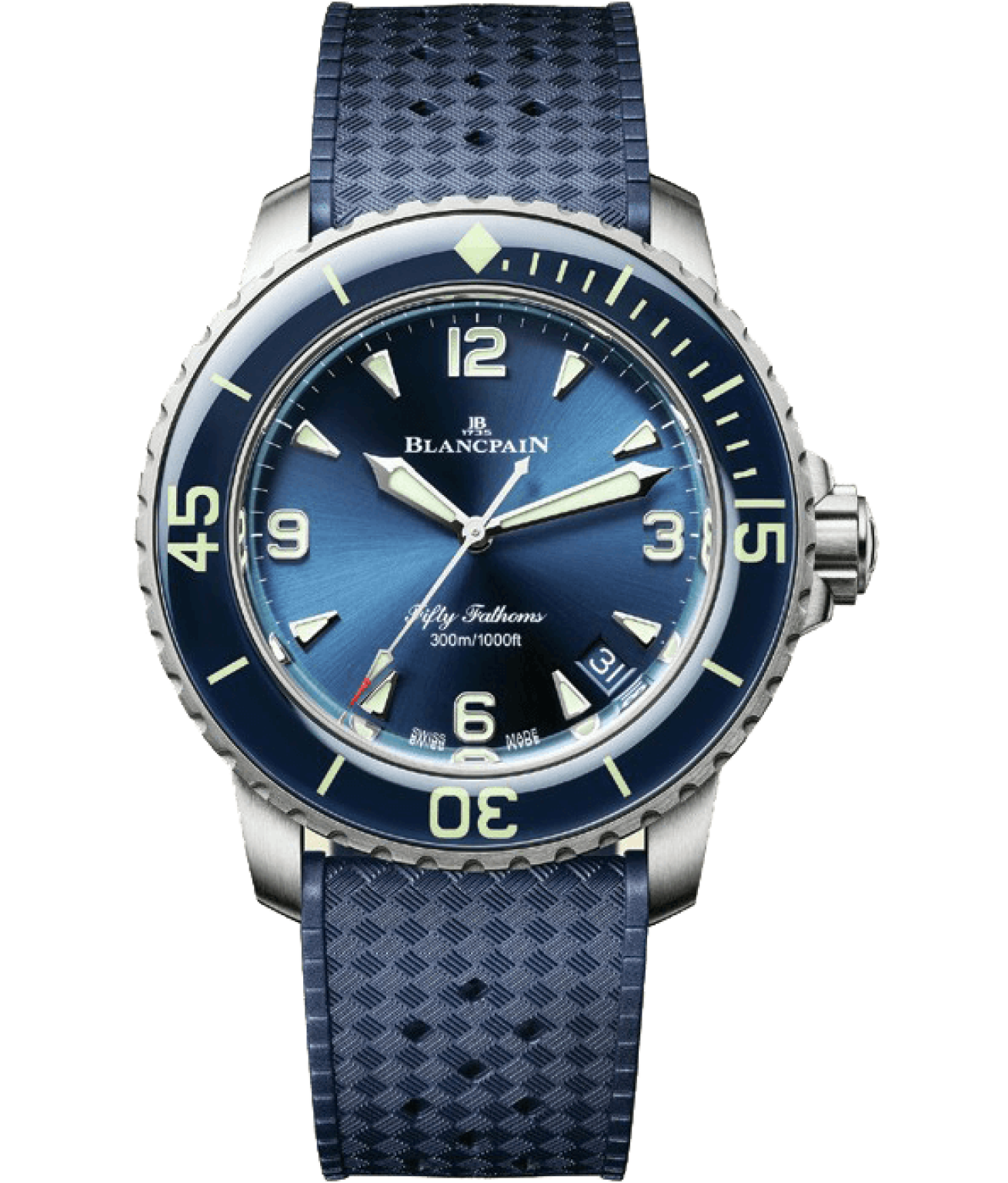
Exploration and preservation of the world’s oceans is at the core of Blancpain. With its legacy of the Fifty Fathoms—the first true diver’s watch—extending over 70 years, Blancpain has been alongside the explorers, photographers, scientists and environmentalists who treasure this precious resource. With that affinity has come a determination to support impactful initiatives dedicated to the oceans.
To date, Blancpain has supported more than 40 major scientific projects and expeditions, celebrated its role in significantly extending the surface area of marine protected areas around the world, and presented several award-winning documentary films, underwater photography exhibitions and publications. This dedication to supporting ocean exploration and preservation is called Blancpain Ocean Commitment.
Click here to learn more about the Blancpain Ocean Commitment.


